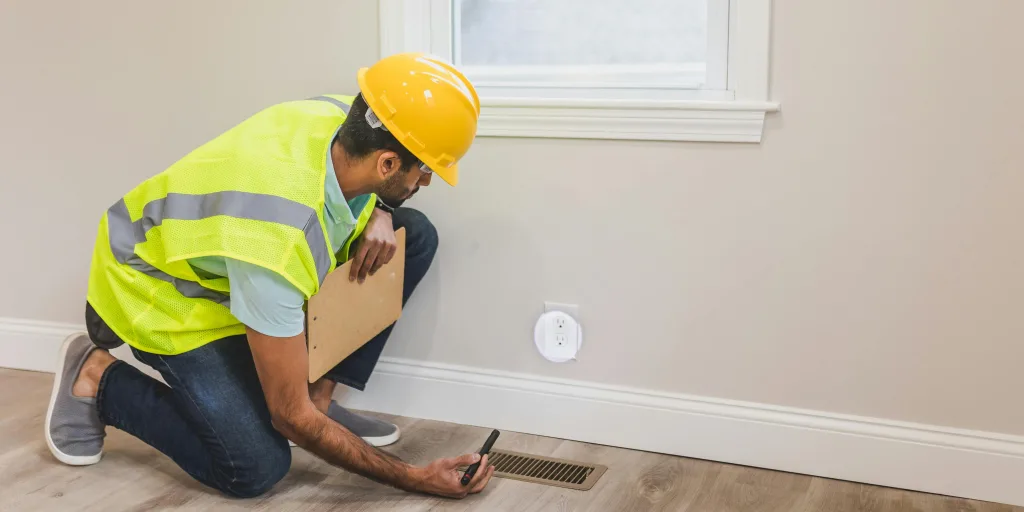Alright, let’s be real for a minute. If you’ve got a sharp eye, a decent understanding of how houses work (or a willingness to learn), and you’re itching to break free from the 9-to-5 grind, starting a home inspection business might be exactly what you’re looking for.
This isn’t some flashy, overnight success type of thing. It’s a hands-on, practical business that thrives on trust, skill, and consistency. The good news? You don’t need a fortune to get started. The even better news? There’s solid demand—every single day, somewhere in America, someone’s buying a house and needs an inspection.
Let me walk you through the real-world steps—what works, what to watch out for, and what most guides won’t tell you.
So, Why Start a Home Inspection Business Anyway?
We’re talking about a service that’s baked into almost every real estate transaction. Over 90% of home buyers in the U.S. hire an inspector before closing the deal. That’s not just a stat—it’s your potential client list.
Here’s what’s fueling the demand:
- Peace of Mind: Buyers want to sleep at night knowing their roof won’t cave in six months from now.
- Legal or Loan Requirements: Banks and state laws often require it. So, yeah, it’s not optional.
- Professional Trust: People would rather pay for expertise than gamble on guesswork.
Honestly, it’s one of those businesses that quietly keeps growing, even when the economy gets rocky. If you’re interested in real estate-related businesses beyond inspections, check out our guide on how to start a real estate business.
8 Steps to Start a Home Inspection Business
To start and run a successful home inspection business, you need to plan carefully. We have listed all the steps you need to follow:
1. First, What Do Home Inspectors Actually Do?

If you think it’s just walking around a house with a clipboard, think again. You’re checking systems—electrical, plumbing, HVAC, roofing, the whole shebang. Your job is to find what others miss and then clearly communicate what that means for the buyer.
Inspections usually take 2–4 hours, and you’ll wrap it all up in a report, sometimes the same day. And no, you don’t fix anything—you just report, recommend, and move on.
Skills you’ll need (or need to develop):
- Sharp observation (details matter)
- Decent building knowledge
- Good writing and people skills
- Time management (you’ll be juggling calls, bookings, and reports like crazy)
2. Licensing: Yes, You’ve Gotta Deal With It
Like most good things, it’s not just plug-and-play. Licensing varies by state.
Some states (like California) are a bit more relaxed—no license required—but don’t let that fool you. Buyers and agents still expect you to know your stuff. Other places (Texas, Florida, Illinois) have strict licensing rules.
Here’s what you do:
- Check your state’s requirements online
- Look into training programs that are state-approved
- Figure out if you need to do supervised inspections before going solo
Insider tip: Even if licensing isn’t required, go get certified. It makes a big difference when someone’s choosing between you and five other inspectors.
3. Get Certified (This Is Your Foundation)
Let’s talk credibility. You need it. Certification shows people you’ve done the work and know your stuff. You can check InterNACHI’s official site for training and certification, especially if you’re just getting started.
Top two in the U.S. (and yes, they’re both well-respected):
- InterNACHI: Flexible online courses, loads of extras like marketing templates
- ASHI: Tougher standards, but gives your name extra weight in the industry
Training costs? Anywhere from $500 to $1,500. Worth every penny.
Also, these orgs give you bonus tools—contracts, inspection report software, even logos for your website. And if you’re looking for something a bit more traditional, ASHI’s website is worth bookmarking.
4. Don’t Skip the Business Plan
I get it—writing a business plan sounds boring. But hear me out: it keeps you focused. Without it, you’ll likely wing it, and winging it rarely works long-term.
Break it down:
- Who’s your ideal client? First-time homebuyers? Realtors?
- What services will you offer? Basic inspections? Add-ons like mold or radon checks?
- What are your startup and monthly costs?
- How much do you want to earn this year? Next year?
Treat it like a living document, not a one-and-done file.
5. Make It Legal (Yes, This Part Is Boring But Important)
You need to operate legally and protect yourself.
To-do list:
- Choose a business name (grab the .com while you’re at it)
- Register as an LLC (or S-Corp, if that suits your tax setup better)
- Get your EIN from the IRS
- Open a separate business bank account
- Buy liability insurance and E&O (Errors & Omissions) coverage
Trust me: that insurance will save your butt someday.
6. Gear Up: Tools & Software
Don’t go overboard buying every fancy gadget. Start smart.
Essentials:
- Moisture meter
- High-lumen flashlight
- Voltage tester
- Telescoping ladder
- Infrared thermometer
- Safety boots and gloves
On the software side:
- Spectora or HomeGauge are both solid. They make your reports look sharp, and clients will notice.
You’ll likely spend about $2K–$3K to gear up properly.
7. Build Your Online Presence (Your Digital Curb Appeal)
A present, if you’re not online, you basically don’t exist. And by the way, home inspection is just one of many low-investment service businesses worth considering if you’re planning your next move.
Start with:
- A clean, mobile-friendly website (nothing fancy, just clear info, pricing, and booking options)
- Google Business Profile (must-have for local search)
- Social media—at least Facebook and LinkedIn to start
- Listings on sites like Yelp, Thumbtack, and even Zillow (yes, you can get traffic there too)
- Make sure your site has a sample report. People love to see what they’re paying for.
8. Realtors: Your Best Friends (Eventually)
Look, realtors already have their go-to inspectors. But if you build trust, they’ll start sending clients your way.
How?
- Attend open houses or broker meetups
- Drop off branded reports or sample packages
- Offer to do first inspections for a discount (but don’t undervalue yourself)
- Be insanely reliable and always deliver reports on time
This business is relationship-driven. Play the long game.
Price Smart (Don’t Undersell Yourself)
Here’s a truth bomb: Cheap inspectors don’t last long.
National average:
- Basic inspection: $400–$500
Add-ons:
- Radon: $150
- Mold: $200
- Sewer line scope: $250
Make your pricing transparent. Offer packages. Position yourself as someone who brings value, not just affordability.
Nail the Report (This Is Your Product!)
Anyone can walk through a house. But your report is what clients remember—and what agents keep on file.
Quick tips:
- Use plain English (ditch the jargon)
- Include clear photos and callouts
- Highlight urgent issues upfront
- Don’t panic the client, but don’t sugarcoat either
Your report should feel like a conversation, not a court document.
Scale Smart (When You’re Ready)
Once you’re fully booked and confident, you can:
- Hire a second inspector (train them well)
- Offer commercial inspections
- Launch a YouTube channel or blog for SEO and lead gen
- Start a newsletter for realtors and past clients
You don’t need to become a giant agency, but a little scaling goes a long way.
Cost of Starting a Home Inspection Company
You can start lean or go all-in. Rough ballpark:
- Certification: $1,000
- Tools & gear: $1,500
- Software: $1,200/year
- Website/branding: $500
- Insurance: $800
- Legal setup: $500
Total: Around $5,500 to start a home inspection business comfortably
Can you do it cheaper? Sure, but don’t cut corners where it counts.
So, How Much Can You Make from a Home Inspection Business?
Here’s a no-BS breakdown:
- Part-time (1–2 jobs/week): $30K–$50K
- Full-time solo: $75K–$100K
- With a team or extra services: $150K and beyond
The margins are great. Keep your calendar full, and you’re in good shape.
Frequently Asked Questions (FAQs)
How long does it take to become a certified home inspector?
It depends on your state and the certification body. Some online programs can be completed in 2–4 weeks, while states with supervised inspections may require a few months.
Do I need construction experience to become a home inspector?
It helps, but it’s not a dealbreaker. Most certification programs teach you what you need to know. Curiosity, attention to detail, and a willingness to learn are more important.
Is home inspection a full-time business or a side hustle?
It can be either. Many inspectors start part-time and scale up. With steady clients, it easily becomes a full-time income source.
How do I get clients when I’m just starting out?
Networking with real estate agents is key. You can also leverage online platforms like Google Business, Yelp, and Facebook to get found locally.
Are there recurring costs to run a home inspection business?
Yes. Expect ongoing costs for insurance, software, marketing, and continuing education. These are manageable and typically offset by consistent income.
Can I run a home inspection business from home?
Absolutely. You don’t need an office. Just a laptop, phone, inspection tools, and solid organizational skills.
Final Thoughts: Why Home Inspection Business Actually Matters
At the end of the day, you’re not just poking around crawl spaces and attics. You’re giving people peace of mind. That first-time buyer counting on you to flag something big? That’s a real responsibility.
If you like being your own boss, working with integrity, and being part of life-changing decisions, this is one of the most rewarding small businesses out there.
Take it seriously, grow slowly, and always keep learning. The demand is steady, and the trust you build compounds over time.

Rupak Chakrabarty is a small business coach and founder of 99BusinessIdeas.com, where he and his team share practical guides and startup resources for entrepreneurs worldwide. With over a decade of experience in business consulting, Rupak has advised startups and small businesses across industries, including retail, food services, making money online, and e-commerce. His mission is to simplify entrepreneurship by providing actionable insights that help everyday people turn ideas into profitable ventures.
Contact: rupak@99businessideas.com


